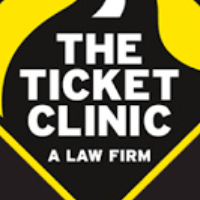Balm Misdemeanor Lawyer, Florida
Sponsored Law Firm
-
 x
x

Click For More Info:
-
Law Office of Mark S. Guralnick
55 Madison Avenue 4th Floor Morristown, NJ 07960» view mapCriminal Defense Law Dedicated. Fearless. Successful.
Mark S. Guralnick and his legal team have helped clients throughout the USA and across the world by applying unparalleled dedication and hard work to each case.
800-399-8371
Richard McCluskey
✓ VERIFIEDDivorce & Family Law, Misdemeanor, DUI-DWI, Criminal
Richard McCluskey is a practicing attorney in the state of Florida. He received his J.D. from St. Thomas University School of Law in 2005. He currentl... (more)
FREE CONSULTATION
CONTACTLawrence A Jacobs
Defect and Lemon Law, Divorce & Family Law, Misdemeanor, Criminal
Status: In Good Standing Licensed: 47 Years
William Bryan Padelford
Other, Landlord-Tenant, Traffic, Misdemeanor
Status: Deceased Licensed: 40 Years
Leonard Joseph Connors
Real Estate, Divorce & Family Law, Misdemeanor, Defamation & Slander
Status: In Good Standing Licensed: 44 Years
Robert H. Mohr
Commercial Real Estate, Traffic, Wills, Estate Planning, Misdemeanor
Status: In Good Standing Licensed: 49 Years
Blair Hansen Clarke
Education, Federal Trial Practice, Misdemeanor, Insurance
Status: In Good Standing Licensed: 19 Years
 Mark Guralnick Morristown, NJ
Mark Guralnick Morristown, NJ AboutLaw Office of Mark S. Guralnick
AboutLaw Office of Mark S. Guralnick Practice AreasExpertise
Practice AreasExpertise



